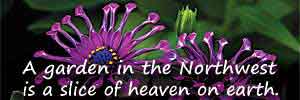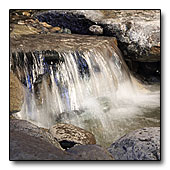
Rainy Side Gardeners
stance on chem-icides
Debbie Teashon
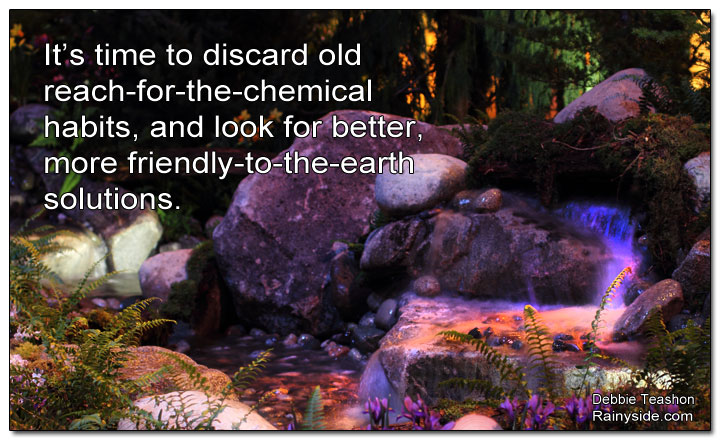
Originallyy posted on our Facebook discussion groups after someone recommended using a systemic on roses to control aphids. The piece has since been edited for this article.
In the over two decades (1997) that Rainy Side Gardeners has been on the web, we have never promoted chemical gardening. If you use pesticides or any chem-icide* that is your business, in your garden. However, here in our discussions, we are about Integrated Pest Management (IPM). In other words, we are using the least toxic methods first before reaching for the toxins.
Any products (even some organic ones) that any of us recommend, we need to give the warning to read and follow the label. In our gardens, chemicals should always be used responsibly, and only as a last resort.
Giving home remedies, or what I like to call the Jerry Baker horror of makeshift-remedies (even if he didn't recommend them), we should call them out. Then we can discuss what goes wrong with so many of them, or why they are not a good reason to use in the garden.
That's not saying all home remedies are wrong. For instance, beer traps for slugs are not going to be problematic, unless you steal a craft beer from your spouse's stash for your traps. (Edit: Someone pointed out that soldier beetles who prey on slugs and other pests can also drown in the beer.)
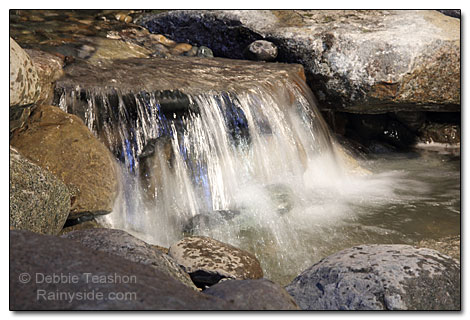
Epsom salt a favorite home remedy by many, is a pollutant to our waterways, and is not necessary. There are good fertilizers that will solve any problem that makes someone reach for the salts, without polluting the environment. What scientific research shows, Epsom salt is not an effective remedy, should be the best reason to get off that home remedy kick.
We should be open to growing as gardeners. It's time to discard old reach-for-the-chemical habits, and look for better, more friendly-to-the-earth solutions.
When we had our discussions on the website, we had the policy to discuss the least toxic methods, or Integrated Pest Management (IPM). We did not recommend big guns for simple problems.
I have always been an organic gardener, and I plan to remain that way, as I see no benefits to chemical gardening. I know people who use poisonous chemicals in their gardens and most seem to be on a toxic merry-go-round, with more significant problems then I face in mine. A bug bite on a leaf is NOT the end of my world. When there's a problem, I identify it first, then see if the problem is still around, since some insects do damage and then move on.
For example, when my plum tree was still young, there was an outbreak of pear slug. I never saw it before, and the little, horrid, black, slug-looking creature was doing noticeable damage. I picked off what I could reach and find, and did nothing more. The pests never returned in the 20 years after that I grew the plum tree. Had I reached for a chem-icide, I would have killed many beneficial insects that guard my garden.
I remember a man coming into a nursery where I worked with a baggy full of damaged leaves. A ladybug larva sat on one of the leaves. The man thought the insect was the problem. I explained that no, the black and orange larva was a beneficial insect, protecting his garden. The man wanted to spray his tree anyway. I asked him if he saw any other insects.
"No, just this one," he said.
I tried to convince him he would kill off the ones that wiped out the problem, and everything would be okay now, he bought an insecticide anyway. What is often not discussed about –icides is the chem-icides cure is often more problematic than the original problem.
Many products we use here in this country are banned in other countries. The banning should raise red flags for many of us.
I believe before anyone uses a chem-icides in a garden, it should be mandatory to go to classes and become licensed for use in their home garden. That will never happen.
Although, more products are now banned, it's not enough. We need to educate ourselves about these products.
-
If you would like to join in on one of our Facebook discussion groups you can do so here:
I urge, that if you use chem-icides in your garden, read the labels carefully, make sure your target is on the list, and that you follow the directions to the letter. Even better, download the hazard sheets and study them carefully. If you misuse them, you might be setting up yourself and others for health problems down the road.
The best solution before you reach for a chem-icides is to rethink that habit. Monitor your garden and catch a problem early. Identify the culprit causing damage, and seek out organic solutions first. Besides, sometimes doing nothing is the best approach. The pest most likely moved on long before you found the damage.
The most exceptional solution is work towards a balance in your garden, because often Mother Nature has the best solution, providing you don't in-toxic-ate her.
* Chem-icide — a word I coined for pesticides, herbicides, and fungicides.
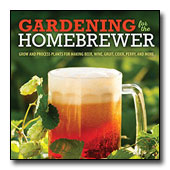
Gardening for the Homebrewer: Grow and Process Plants for Making Beer, Wine, Gruit, Cider, Perry, and More
By co-authors Debbie Teashon (Rainy Side Gardeners) and Wendy Tweton
Copyright Notice | Home | Search | Articles

